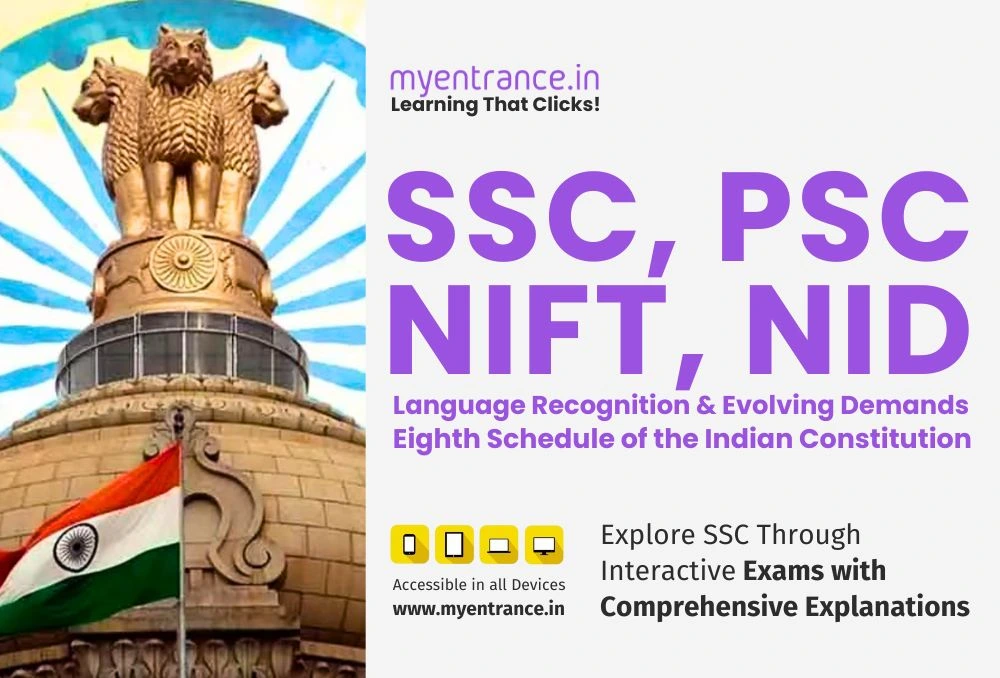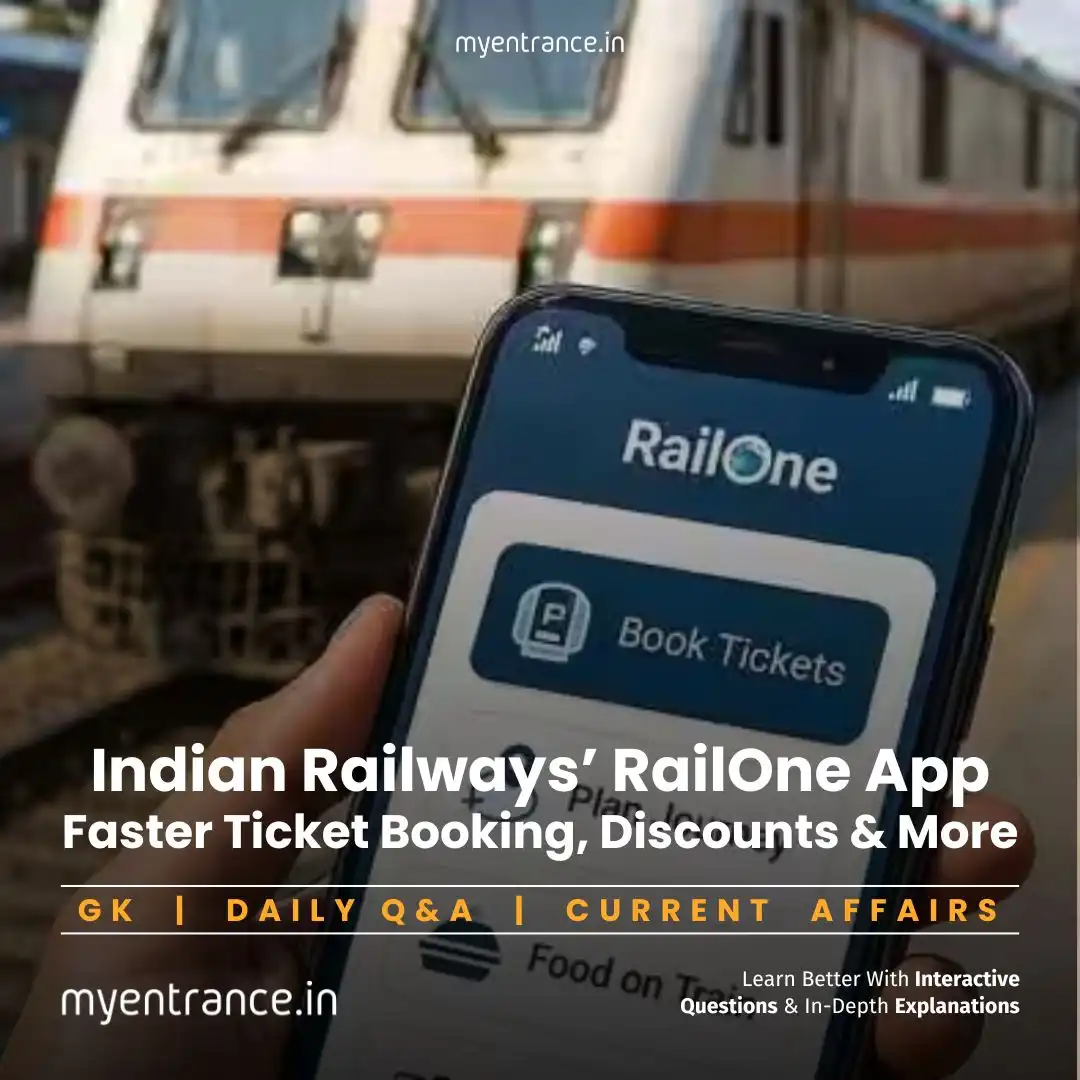Select Language
Eighth Schedule of Indian Constitution: Language Demands, Amendments & Exam Focus
The Eighth Schedule of the Indian Constitution plays a crucial role in preserving India’s linguistic diversity and promoting regional identities. With recent protests, rising language inclusion demands, and historical significance in exams like SSC, UPSC, PSC, and State Services, this topic is a must-know for aspirants preparing for competitive exams. From the evolution of the schedule to constitutional provisions and classical languages, understanding this subject will boost both your prelims and mains readiness.
Why in the News?
Several languages are actively demanding inclusion in the 8th Schedule:
Kokborok (Tripura): Push for recognition using either Bengali or Devanagari script.
Bhojpuri: Massive protest in Delhi (Feb 2025), despite its recognition in Nepal and Mauritius.
Pending Proposals: More than 38 languages like Tulu, Khasi, and Rajasthani are still awaiting formal entry.
Key Constitutional Articles Related to Languages
Article 344(1): Calls for an Official Language Commission to promote the use of Hindi with support from Scheduled Languages.
Article 351: Directs the Union Government to enrich Hindi using vocabulary from the Scheduled Languages.
Journey of the Eighth Schedule (1950 to Present)
Historical Evolution:
1950: Originally recognized 14 languages (Hindi, Bengali, Tamil, Urdu, etc.)
1967 (21st Amendment): Added Sindhi
1992 (71st Amendment): Included Konkani, Manipuri, Nepali
2003 (92nd Amendment): Introduced Bodo, Dogri, Maithili, Santhali
Important Note: English, despite being an official working language, is not a part of the 8th Schedule.
Criteria for Inclusion: What Makes a Language Eligible?
Recommendations by Committees:
Pahwa Committee (1996):
Official language in at least one state
Recognized by Sahitya Akademi
Culturally distinct status
Mohapatra Committee (2003):
Minimum 5 million speakers (as per last 3 censuses)
Script in use for over 50 years
Medium of instruction till at least Class 10
Reality Check: No legally binding criteria exist; inclusion remains dynamic and politically influenced.
Benefits of Being a Scheduled Language
Exam Boost: Eligible for Indian Language Paper in UPSC & State PSCs
Parliament Access: MP speeches can be translated into these languages
Funding: Grants from the Centre for language development
Recognition: Constitutional status improves preservation efforts
Education: Can be used as a medium of instruction in schools
Bonus Insight: Classical Languages vs Scheduled Languages
Classical Language Additions (as of 2024)
Newly Added: Marathi, Pali, Prakrit, Assamese, Bengali
Earlier Additions: Tamil, Sanskrit, Kannada, Telugu, Malayalam, Odia
Interesting Fact: Prakrit and Pali are classical but not scheduled languages – a rare exception.
Criteria for Classical Status:
1500+ years of history
Rich literary tradition
Cultural independence from borrowed sources
Exam Readiness: Sample Questions & Model Answers
Sample MCQs for Practice
Q1. Which of the following is not a part of the Eighth Schedule?
A. Tulu
B. Dogri
C. Konkani
D. Maithili
✅ Answer: A. Tulu
Q2. Under which article is the Official Language Commission set up?
A. Article 348
B. Article 351
C. Article 344(1)
D. Article 343
✅ Answer: C. Article 344(1)
Sample Mains Answer (Polity – GS Paper II)
“India’s Eighth Schedule mirrors its linguistic richness, but the lack of standard inclusion criteria invites political misuse. Adopting measurable frameworks—such as Mohapatra’s demographic threshold—can help balance recognition with cultural justice.”
Quick Facts for Revision
Current Scheduled Languages: 22 (spoken by nearly 96% of India’s population)
Upcoming Demands: Kokborok (1.2 million speakers), Bhojpuri (50+ million diaspora)
Likely Future Entries: Tulu, Khasi, Rajasthani
Tips for SSC, PSC & Other Competitive Exams:
Focus on constitutional articles and amendments.
Know the difference between classical and scheduled languages.
Prepare short notes on pending languages & their demographics.
Practice Most Predicted Questions provided by MyEntrance questions: Match language to state/region.
Most Predicted Questions
Comprehensive study materials, Expert-guided tips & tricks, Mock tests and instant results.
Start your SSC/ PSC/ NIFT/ NID journey today with MyEntrance, your ultimate online coaching platform.








